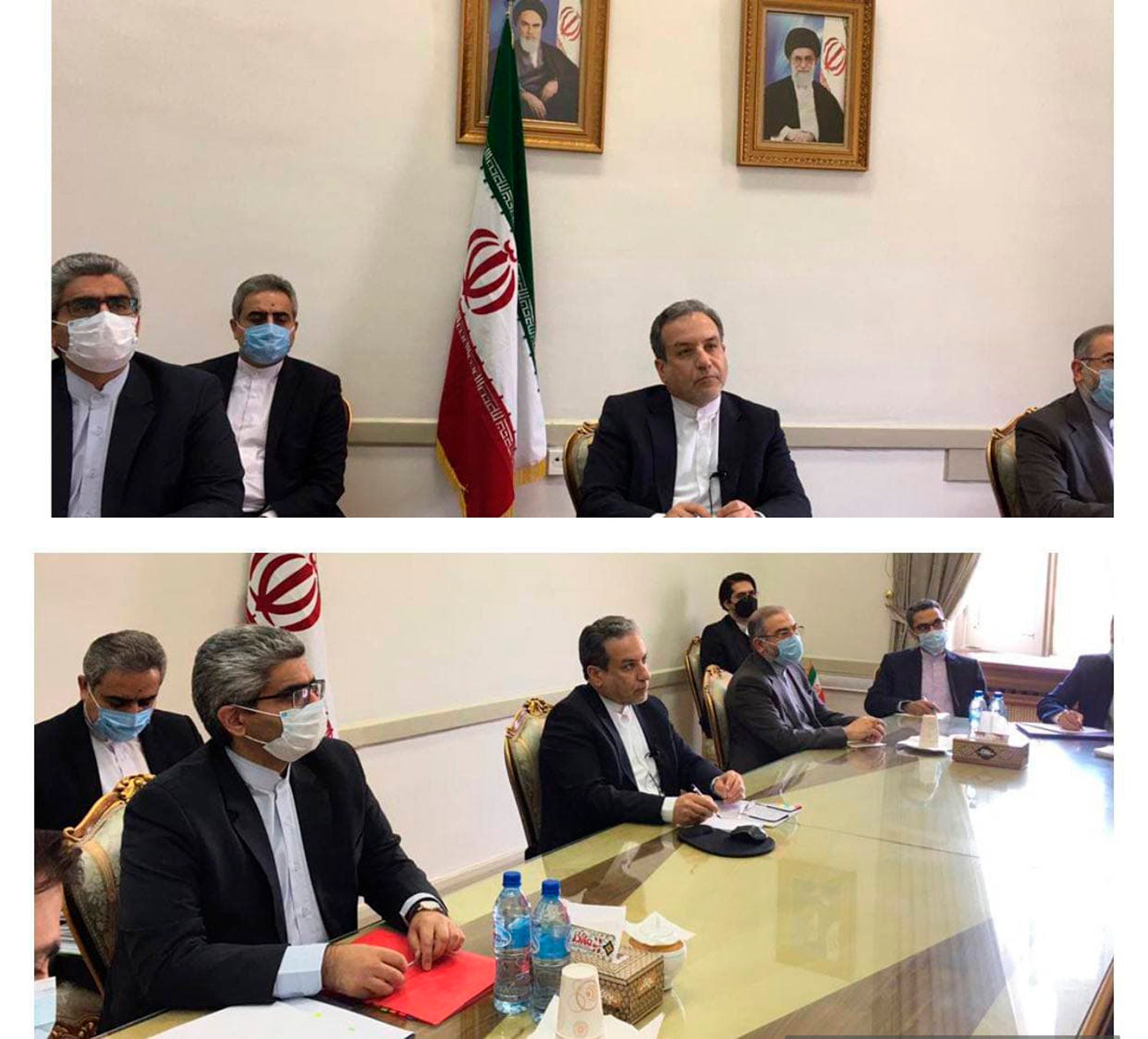Iran, world powers ready to welcome back US to nuclear deal
Iran and the major powers in the agreement to keep Tehran from developing nuclear weapons say they are ready to welcome the return of the United States

Your support helps us to tell the story
From reproductive rights to climate change to Big Tech, The Independent is on the ground when the story is developing. Whether it's investigating the financials of Elon Musk's pro-Trump PAC or producing our latest documentary, 'The A Word', which shines a light on the American women fighting for reproductive rights, we know how important it is to parse out the facts from the messaging.
At such a critical moment in US history, we need reporters on the ground. Your donation allows us to keep sending journalists to speak to both sides of the story.
The Independent is trusted by Americans across the entire political spectrum. And unlike many other quality news outlets, we choose not to lock Americans out of our reporting and analysis with paywalls. We believe quality journalism should be available to everyone, paid for by those who can afford it.
Your support makes all the difference.Iran and the major powers in the agreement to keep Tehran from developing nuclear weapons said Friday they were ready to welcome the return of the United States to the deal.
The chair of the group including the European Union, China France Germany, Russia, Britain and Iran said that the participants “emphasized their commitment to preserve the JCPOA and discussed modalities to ensure the return to its full and effective implementation," according to a statement after their virtual meeting, referring to the acronym for the accord — the Joint Comprehensive Plan of Action.
The group said they would resume further talks next week in Vienna on the 2015 agreement, “in order to clearly identify sanctions lifting and nuclear implementation measures.”
The statement also said that the group’s coordinator “will also intensify separate contacts in Vienna” with all participants of the nuclear agreement and the United States.
In Tehran, state television quoted Abbas Araghchi, Iran's nuclear negotiator in the Friday virtual meeting, as saying in the meeting that any “return by the U.S. to the nuclear deal does not require any negotiation and the path is quite clear.”
“The U.S. can return to the deal and stop breaching the law in the same way it withdrew from the deal and imposed illegal sanctions on Iran,” Araghchi was quoted as as saying.
Washington pulled out of the deal unilaterally in 2018 under President Donald Trump, but successor Joe Biden has indicated that the U.S. would be willing to rejoin.
But there are complications. Iran has been steadily violating the restrictions of the deal, like the amount of enriched uranium it can stockpile and the purity to which it can enrich it. Tehran’s moves have been calculated to put pressure on the other nations in the deal — Russia, China, France, Germany and Britain — to do more to offset crippling sanctions reimposed under Trump.
Iran has said that before it resumes compliance with the deal, the U.S. needs to return to its own obligations under the deal by dropping the sanctions.
The International Atomic Energy Agency has said that over the past two years, Iran has accumulated a lot of nuclear material and new capacities, and used the time for “honing their skills in these areas.”
The ultimate goal of the deal is to prevent Iran from developing a nuclear bomb, something it insists it doesn’t want to do. Iran now has enough enriched uranium to make a bomb, but nowhere near the amount it had before the nuclear deal was signed.
As part of its ongoing violations of the JCPOA, Iran last month began restricting IAEA inspections of its nuclear facilities. Under a last-minute deal worked out during a trip to Tehran, however, some access was preserved.
Under that temporary agreement, Iran will no longer share surveillance footage of its nuclear facilities with the IAEA, but it has promised to preserve the tapes for three months. It will then hand them over to the Vienna-based U.N. atomic watchdog if it is granted sanctions relief. Otherwise, Iran has vowed to erase the tapes, narrowing the window for a diplomatic breakthrough.